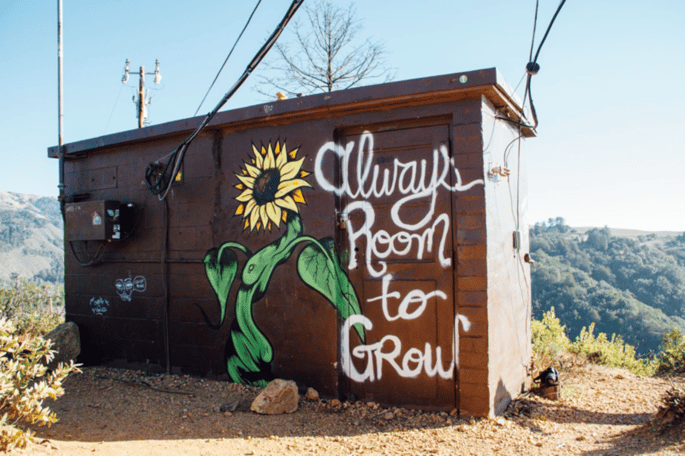How to stay grounded and connected when fearful or far apart.
4-minute read
Not news: working from home during a global pandemic is challenging. Beyond the obvious and overt challenges are the subtler, more insidious effects. In pre-pandemic times, we’d routinely take in volumes of non-digital data about our co-workers. In-person interactions and frequent small talk were part of the fabric of our work relationships. Those kinds of interactions are critical. They help cultivate understanding of each other as multidimensional humans. They also help illuminate the complexity and nuances of goings-on at our organizations.
In pandemic times, we have less information about each other and it’s entirely filtered through technology. Our brains are trying to extract the same meaning and significance from a fraction of the data, and--spoiler alert!--it’s not going well.
Case in point: one afternoon last week I went far down a rabbit hole of looking at (ok, fine, scrutinizing and comparing myself to) dear co-workers' calendars.
I would see someone else’s full calendar with numerous meetings, calls, and tasks, and my brain came up with something like this:
“Oh, person X has 17 meetings in the next 2 weeks. That’s a lot more than I have.”
“I guess that means X must be a more valued employee than me.”
“Additionally, I must have been entirely forgotten about and overlooked.”
“Welp, good thing we bought all those beans at the beginning of the pandemic, because as of next week, I’ll no longer be gainfully employed. At least I’ll have some beans to make to occupy my time and some cheap protein eats to sustain me through my sobbing state of worthlessness.”
< FIN >
In the blink of an eye, I had swiftly scaled up the Ladder of Inference.
The Ladder of Inference is a mental model Chris Argyris created to identify this tendency we all have to take a piece of data and rapidly make “leaps of abstraction.” Making rapid assessments and inferences is a very useful evolutionary development. Imagine how taxing it would be if we had to deeply investigate every piece of data as if we were seeing it for the first time: “The hot water faucet is turned on, and the water streaming out of it is steaming, but I shouldn’t assume that water is scalding hot!” = BAD IDEA.
Unfortunately, leaps and links are too often founded upon presumptions that are false, skewed, or biased. We create a logic thread and quickly believe it to be true. This isn’t just annoying, it can lead us to incorrect conclusions, and, ultimately, misguided actions.
We often do this so quickly, we don’t even realize we’re doing it
During times like these the Ladder of Inference can get us into trouble. Remote work means fewer data points about each other. Consequently, we have many more opportunities to make erroneous inferences at a more frequent rate. The impacts are real: dips in motivation, engagement, productivity, and wellbeing are sure to happen as we believe our minds’ distorted versions of reality.
So, what to do?
One of our favorite tools at LifeLabs is to default to questions mode: ask at least one question before assuming we know an answer--whether that’s for ourselves or someone else.
The next time you find yourself gripping a fatalistic conclusion about a person or situation, q-step (step into questions mode) yourself! Start by asking:
-
- Am I feeling frustrated/inadequate/resentful/fearful/angry/jealous?
- If YES, q-step again: Is this a conclusion based on reality, or might it be an inference? And q-step again: Can I name what the data or observation is?
(Example: I’m worthless and no one values me! (Inference) vs. “X has 7 meetings this week and I have 2.” (Observation)
Then--keep q-stepping!
When I noticed myself perched at the top of the ladder, white-knuckling my bags of heirloom beans, I paused, took a deep breath, and asked myself:
“What else might be contributing to this data you see here?”
“When is the last time you had a direct 1:1 conversation with a teammate?”
“When you talked to your teammate, what questions did you ask about their workload or the context in which they are working?”
Next time you find yourself in a state of fear or frustration, clinging to your proverbial beans at the top of your Ladder of Inference, q-step yourself on down to solid ground. Doesn’t that feel better? It sure did for me.
And once you’re there, why not reach out to connect with a co-worker directly?


